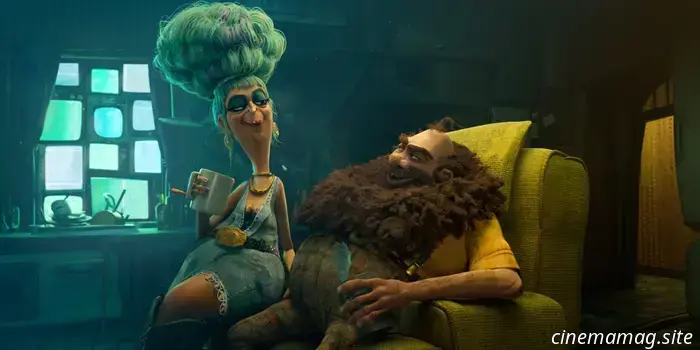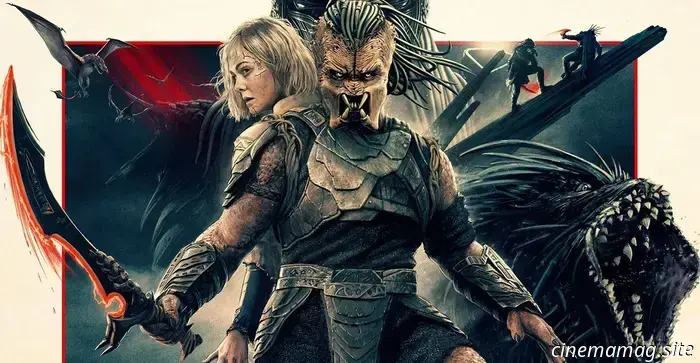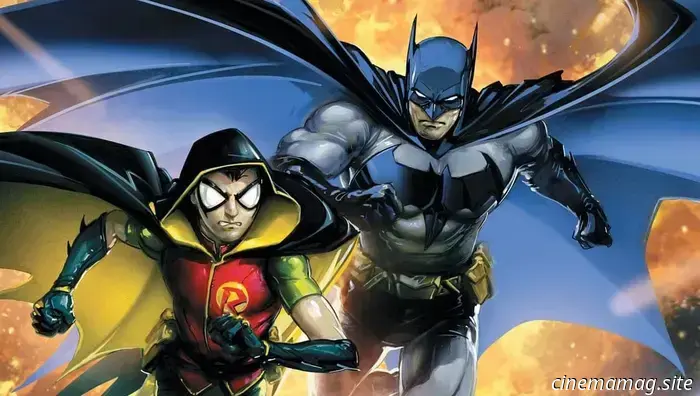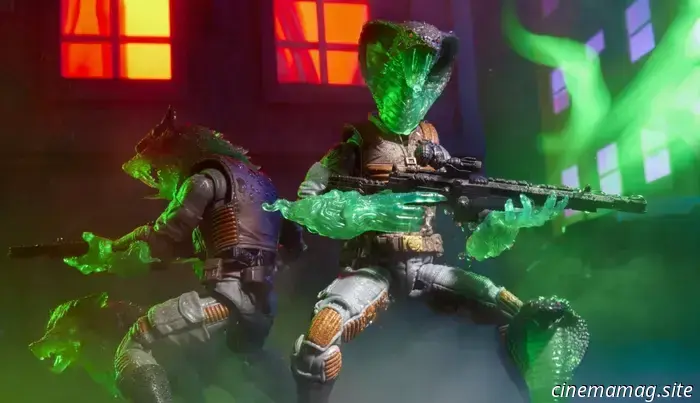.jpg)
Film Review – After the Hunt (2025)
**After the Hunt, 2025.**
Directed by Luca Guadagnino.
Starring Julia Roberts, Ayo Edebiri, Andrew Garfield, Michael Stuhlbarg, Chloë Sevigny, Lio Mehiel, David Leiber, Thaddea Graham, Will Price, Christine Dye, Lailani Olan, and Nora Garrett.
**SYNOPSIS:**
A college professor finds herself at a pivotal moment in her personal and professional life when a standout student accuses one of her colleagues, and a hidden secret from her past threatens to surface. At a Yale University gathering, director Luca Guadagnino, adapting a screenplay by first-time writer Nora Garrett, uses the occasion to express the sociopolitical views of the principal characters, all intertwined with philosophical discussions. Among them is a supporting student character who articulates a series of troubling opinions that challenge conventional thinking. The dialogue never escalates into intense conflict, but what unfolds in After the Hunt suggests a misunderstanding of its own intellectual depth.
The film also conveys messages that feel oddly out of place, reminiscent of a petulant, privileged student or a self-aggrandizing male. Guadagnino and Garrett seemingly view this work as complex, and while it occasionally touches on thought-provoking themes, it appears to carry a misogynistic tone, exhibiting a cynical, sometimes justified but often bewildering disdain for younger generations.
At the soirée's conclusion, affable professor Hank Gibson (Andrew Garfield) decides to accompany gay Black student Maggie Resnick home. The following day, Maggie reaches out to her philosophy professor, Alma Imhoff (Julia Roberts), to share that the night took an inappropriate turn and sexual boundaries were crossed. Alma, an outspoken proponent of female empowerment, finds herself in a contradictory situation, believing Maggie but downplaying the seriousness of the incident, claiming that any allegations could damage Maggie's academic career as future employers may hesitate to work with someone who poses a risk of being canceled for either serious transgressions or even minor mistakes in the current sensitive climate.
After the Hunt seeks to address the occasionally questionable sensitivity of younger generations while also exposing Alma's selfishness and her failure to live up to her supposed principles. Meanwhile, Hank becomes furious and distressed, trying to convince Alma that Maggie was unfaithful to her partner, plagiarizing for her dissertation (which Alma sees potential in), and that she was reciprocating his flirtations, suggesting this is a calculated move by a privileged, underwhelming student to advance at the expense of her peers. Additionally, Alma's pretentious partner, Frederik (Michael Stuhlbarg), claims that Maggie harbors a secret crush on Alma, seeking closeness as an extension of the academic admiration she has received.
At an excessive 138 minutes, the filmmakers stretch this premise well beyond believability, culminating in tasteless resolutions that suggest Guadagnino believed this material fit with some psychological drama. However, the script treats these issues with a seriousness that seems intended to be a provocative exploration of the sociopolitical tensions between generations. This film is so detached from the issue of sexual assault, which should theoretically be central to the narrative, that it's troubling how often the story sidelines Maggie to focus on Alma either defending herself or unraveling psychologically, even introducing medical complications, in favor of framing the situation as a critique of Generation Z. This perspective comes from someone who appreciates filmmakers who critique performative liberalism or outrage culture.
Not surprisingly, Trent Reznor and Atticus Ross effectively capture the confusion of each character's inner struggle through dissonant compositions. The three leads provide captivating performances in a film that is both engaging yet seems intent on taking a strange and alarming approach to the sociopolitical discourse, undermining any significant message it could convey. To add to the problem, After the Hunt often feels repetitive, reiterating the same character details in different scenes. There’s a sense that something meaningful lies within the film’s rambling nature, yet one can’t shake the disappointing feeling that it won’t successfully address the topical themes it introduces.
In principle (I regret mentioning that again, but it’s a sentiment that applies broadly to this misguided work), a sharp film that questions when the pursuit of accountability and justice becomes excessive vengeance should be powerful. It achieves that intensity at moments, particularly during exchanges between Julia Roberts and Ayo Edebiri. However, this dynamic ultimately serves to lead to a bleak conclusion not only about Alma (who realizes part of her is flawed) but also regarding Maggie’s character. After the Hunt reveals the director's unsettling fascination with the worst aspects of these characters, which is the second most shocking element of a film that fails to navigate serious topics effectively. The most surprising aspect is that it was penned by a woman.
**Flickering Myth Rating – Film: ★ ★ / Movie: ★ ★ ★**
Robert Kojder
.jpg)
.jpg)
.jpg)
.jpg)
.jpg)
Other articles
 Netflix has released a trailer for its animated adaptation of Roald Dahl's The Twits.
Netflix has released the initial trailer for The Twits, an upcoming animated film inspired by the beloved children's book by Roald Dahl. The movie follows two courageous orphans who join forces with a family of m…
Netflix has released a trailer for its animated adaptation of Roald Dahl's The Twits.
Netflix has released the initial trailer for The Twits, an upcoming animated film inspired by the beloved children's book by Roald Dahl. The movie follows two courageous orphans who join forces with a family of m…
 Predator: Badlands reveals a new trailer, poster, and promotional images.
With only a month remaining until the launch of Predator: Badlands, 20th Century Studios has unveiled a new trailer for the latest chapter in the Predator franchise, directed by Dan Trachtenberg (Prey,...
Predator: Badlands reveals a new trailer, poster, and promotional images.
With only a month remaining until the launch of Predator: Badlands, 20th Century Studios has unveiled a new trailer for the latest chapter in the Predator franchise, directed by Dan Trachtenberg (Prey,...
 Preview of Batman and Robin #26
DC Comics will release Batman and Robin #26 on Wednesday, and you can view the official preview of the issue below... The enigmatic Quiet Man persists in his vicious assault on Gotham’s underworld...
Preview of Batman and Robin #26
DC Comics will release Batman and Robin #26 on Wednesday, and you can view the official preview of the issue below... The enigmatic Quiet Man persists in his vicious assault on Gotham’s underworld...
 Cobra releases the Ghost Viper and D.I.R.E. Beasts in the G.I. Joe Classified Series action figure collection.
After bringing Crystal Ball on board earlier this year, Cobra is fully embracing the supernatural in its fight against G.I. Joe, with Hasbro officially introducing the G.I. Joe Classified Series Ghost Viper…
Cobra releases the Ghost Viper and D.I.R.E. Beasts in the G.I. Joe Classified Series action figure collection.
After bringing Crystal Ball on board earlier this year, Cobra is fully embracing the supernatural in its fight against G.I. Joe, with Hasbro officially introducing the G.I. Joe Classified Series Ghost Viper…
Film Review – After the Hunt (2025)
After the Hunt, 2025. Directed by Luca Guadagnino. Featuring Julia Roberts, Ayo Edebiri, Andrew Garfield, Michael Stuhlbarg, Chloë Sevigny, Lio Mehiel, David Leiber, Thaddea Graham, Will Price, Christi…
